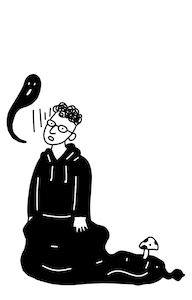-
Written by
Caitlin Johnston
-
Location
Naarm / Melbourne, Australia
-
Theme
News, Thoughts & Opinions
-
Date
September 2024
Journal
Organisational learning is the easiest way to grow and excel businesses forward. At Studio White Noise, learning is integral to our everyday operations. Learning from our mistakes, learning new techniques, learning about new marketing techniques or learning about new technologies. As a young company, we try to learn as much as possible from all internal and external factors.
We’ve found one of the most effective and easy ways for us to learn and grow is from our own mistakes or successes. The concept of single loop learning and double loop learning has become a particular organisational learning theory that we have focussed on. Single loop learning describes the cycle of identifying a problem and then implementing a solution.
A common example is having lots of meetings that are arguably not necessary. The single loop is recognising this is not an efficient use of people’s time and implementing a new process around meetings and/or consolidating meetings wherever possible.
Double loop learning describes the cycle after single loop learning occurs. After identifying a problem and implementing a solution to close the first loop, the second loop is analysing the effectiveness of said solution and identifying the outcomes to close the second loop of learning. Which can then be applied to resolve the original problem in a more effective way. For example, after implementing a new process of meetings, we analyse the usefulness of this process and actually find we have the same amount of meetings, they all just have agendas attached to them now but a lot could still be an email. So we have to then implement another solution based on this second loop of learning to resolve the initial learnings.
Studio White Noise aims for double loop learning in all of the work that we do. Whether that’s a project launch, internal process, corporate website or timeline program. We always want to reflect on our learnings and trialled solutions to ensure we are working in the best way that we can for our clients.
In our work, we are often posed with complex issues that our clients are facing in terms of external economic factors and/or internal factors that can be difficult to map out solutions to. By implementing a second loop of learning to analyse what has worked and not worked constantly, we begin to untangle the true way forward to get the absolute best results for our clients.
By utilising existing organisational learning theory with historic empirical evidence supporting its effectiveness, we don’t need to reinvent the wheel to teach ourselves how to learn effectively.














